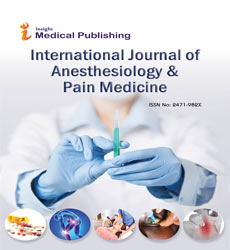Abstract
A comparison of continuous femoral nerve block versus continuous epidural analgesia for analgesia in elderly patients with hip fractures
Uncontrolled acute pain and stress of surgery in elderly patients may cause increased cardiac morbidity and mortality. Early administration of central or peripheral block reduces the incidence of myocardial ischemia and dysrhythmias and the response to stress. The aim of this study was to compare the effect of continuous central and peripheral blocks on the incidence of cardiac complications and their analgesic effect in patients with high cardiac risk with hip fracture.
Methods:
Sixty patients with hip fracture with previously defined high per operative cardiac risk according to American Colleague of Cardiologists/American Heart Association guidelines were included and were randomly assigned to two groups of 30 patients: Femoral Nerve Block group –patients with continuous femoral nerve block with bupivacaine 0,25% - 0,1ml/h; and Epidural Catheters group - patients with a continuous epidural analgesia with bupivacaine 0,125% - 5ml/h and fentanyl 3μg/ml. As an end point of the study were registered the incidence of cardiac events in both groups: cardiac death, myocardial infarction, congestive heart failure, unstable angina and new-onset atrial fibrillation. In all patients was determined pain intensity, the side effects as well as the time required for performing of the block.
The role of regional nerve blockade for hip fracture:
Systemic analgesia poses significant challenges among physiologically frail, elderly trauma patients. Thus, there is growing interest in the role of regional anaesthesia and analgesia, particularly for this vulnerable patient population (for review, see 45). There is mounting evidence to support the use of regional nerve blocks for acute pain in the elderly, associated with a fractured hip. A recent Cochrane review supports the use of regional nerve blocks to reduce acute pain after hip fracture, with highâ€ÂÂÂÃÂquality evidence showing that regional blockade reduces pain on movement within 30 min of block placement 46.
Femoral nerve blocks have been shown to effectively reduce pain associated with hip fracture, in a manner that is siteâ€ÂÂÂÃÂspecific, rapid in onset and reduces the need for opiates and breakthrough analgesia. Benefits beyond effective analgesia have also been suggested, including reduced incidence of delirium, reduced hospital stay, decreased mortality, as well as ease of nerve block administration in ED or even the preâ€ÂÂÂÃÂhospital setting.
Author(s):
Marina Temelkovska Stevanovska, Snezana Popovslka
Abstract | PDF
Share this

Google scholar citation report
Citations : 107
Abstracted/Indexed in
- Google Scholar
- China National Knowledge Infrastructure (CNKI)
- Directory of Research Journal Indexing (DRJI)
- WorldCat
- International Committee of Medical Journal Editors (ICMJE)
- Secret Search Engine Labs
Open Access Journals
- Aquaculture & Veterinary Science
- Chemistry & Chemical Sciences
- Clinical Sciences
- Engineering
- General Science
- Genetics & Molecular Biology
- Health Care & Nursing
- Immunology & Microbiology
- Materials Science
- Mathematics & Physics
- Medical Sciences
- Neurology & Psychiatry
- Oncology & Cancer Science
- Pharmaceutical Sciences

